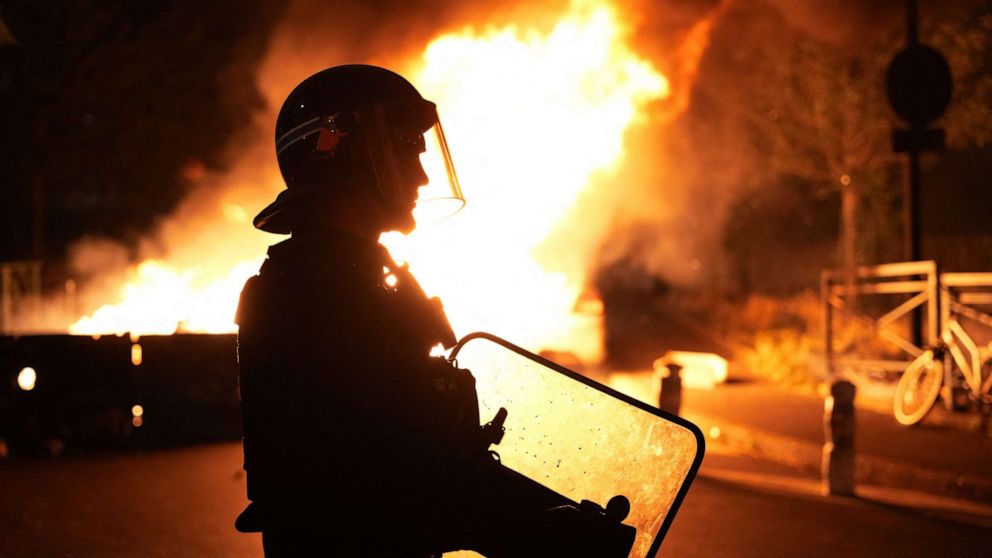World
France has a history of social movements and public demonstrations  By Editor
By Editor
 July 1st, 2023 While it is true that France has a history of social movements and public demonstrations, it would be an oversimplification to label the French people as having a culture of riots.
July 1st, 2023 While it is true that France has a history of social movements and public demonstrations, it would be an oversimplification to label the French people as having a culture of riots. 
In recent years, France has witnessed an increase in public protests, and understanding the underlying factors contributing to this trend requires a multifaceted analysis.
One significant driver of public protests in France is socioeconomic factors. Economic inequality, high unemployment rates, and stagnant wages have created social tensions. Many French citizens perceive a growing gap between the rich and the poor, leading to a sense of injustice and frustration. These economic grievances often find expression through protests and demonstrations as individuals demand greater social and economic justice.
Political dissatisfaction is another factor contributing to the increase in public protests. France has experienced a decline in trust and confidence in political institutions. Many people feel disconnected from the political process and believe their voices are not adequately represented. Issues such as corruption, perceived elitism, and a lack of transparency in governance have fueled public discontent, prompting individuals to take to the streets to express their grievances and demand political reforms.
Another factor contributing to the increase in public protests is social movements and grassroots activism. France has a long history of social movements advocating for various causes, such as workers' rights, environmental protection, and human rights. Recent years have seen a resurgence of grassroots activism, fueled by social media and online platforms that facilitate the organization and mobilization of like-minded individuals. These movements often organize protests and demonstrations as a means of advocating for their specific causes and pushing for social change.
The role of digital technology and social media cannot be overlooked when examining the increase in public protests. Social media platforms provide a powerful tool for mobilizing and coordinating protests, allowing individuals to spread information quickly and gather support. Hashtags and online campaigns have been instrumental in raising awareness about specific issues and attracting participants to public protests. The ease and accessibility of digital communication have undoubtedly contributed to the visibility and frequency of public demonstrations in recent years.
Furthermore, the response of the French government to certain policy decisions has sparked public protests. Controversial reforms, such as changes to labor laws, pension reforms, or educational policies, have often faced opposition from various segments of society. These policy decisions have been met with resistance, leading to widespread protests as citizens voice their concerns and demand changes to proposed legislation.
In conclusion, the increase in public protests in recent years in France can be attributed to a combination of socioeconomic factors, political dissatisfaction, grassroots activism, the influence of digital technology, and responses to specific government policies. While France does have a history of social movements and public demonstrations, it is essential to recognize the complexity of the underlying issues and motivations driving these protests. Public protests serve as a means for individuals and groups to express their grievances, demand change, and shape the political and social landscape of the country.
Facebook
WhatsApp

 By Editor
By Editor  July 1st, 2023
July 1st, 2023 